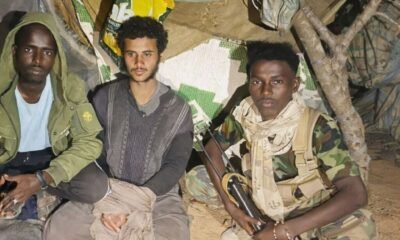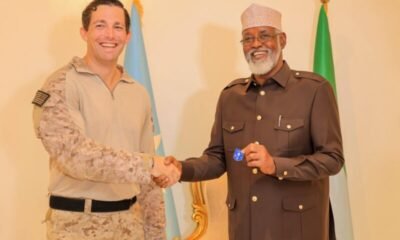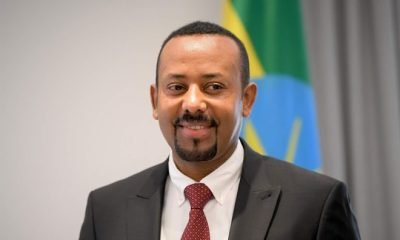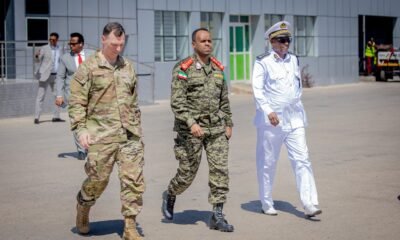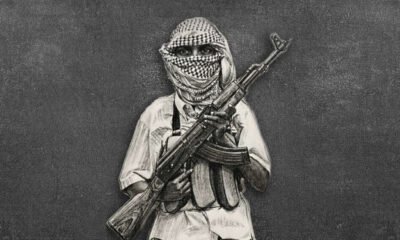Terrorism
Al-Shabaab’s Growing Threat and International Response

Urgent Cooperation Needed as U.S. Warns of Al-Shabaab’s Ties with Yemen’s Houthis
The recent statements by Ambassador John Kelley at the United Nations underscore a significant and troubling development in global terrorism dynamics: the strengthening ties between Somalia’s Al-Shabaab and Yemen’s Houthi rebels. This connection represents not only a regional but a global security threat, given the strategic positions of Somalia and Yemen and their impact on key international shipping routes in the Red Sea.
Al-Shabaab, long recognized as one of the most dangerous extremist outfits in Africa, has proven adept at exploiting Somalia’s instability and extending its influence. The group’s consistent ability to execute high-profile attacks in Somalia and its adeptness at fundraising through extortion signify a sophisticated and well-entrenched terrorist network. The Houthis, on the other hand, have been embroiled in Yemen’s complex civil war and have also engaged in acts that disrupt regional security, including missile attacks and naval maneuvers that threaten maritime security.
The interaction between these two groups is particularly concerning due to their potential to share tactical expertise, resources, and possibly, ideological strategies, which could enhance their capabilities to destabilize the region further. The U.S. response, advocating for dialogue between the Yemen and Al-Shabaab sanctions panels and pushing for a UN Security Council resolution to renew sanctions, indicates the seriousness with which Washington views the emerging nexus between these groups.
Ambassador Kelley’s call for an international response to sever the ties between Al-Shabaab and the Houthis highlights the necessity of a coordinated global strategy to address these threats. Sanctions, travel bans, and asset freezes, while critical, will need to be part of a broader approach that includes intelligence sharing, direct counter-terrorism operations, and perhaps most critically, diplomatic efforts to stabilize war-torn regions where these groups operate.
Moreover, the involvement of the international community in enforcing and expanding sanctions is crucial for their effectiveness. The extension of the mandate for the Panel of Experts on Somalia, tasked with reporting on Al-Shabaab’s finances and activities, is a step in the right direction. However, the global community must also address the underlying political and economic conditions that allow such groups to thrive.
In conclusion, as Al-Shabaab seeks new alliances with groups like the Houthis, the implications for regional and global security are profound. The international community must respond with a multifaceted strategy that combines security measures with significant diplomatic and developmental efforts to ensure long-term stability in the Horn of Africa and the Arabian Peninsula. The evolving situation underscores the intricate web of global terrorism, where regional conflicts can quickly become international security crises.
Terrorism
U.S. Expands Security Footprint in Nigeria as Insurgency Battle Intensifies
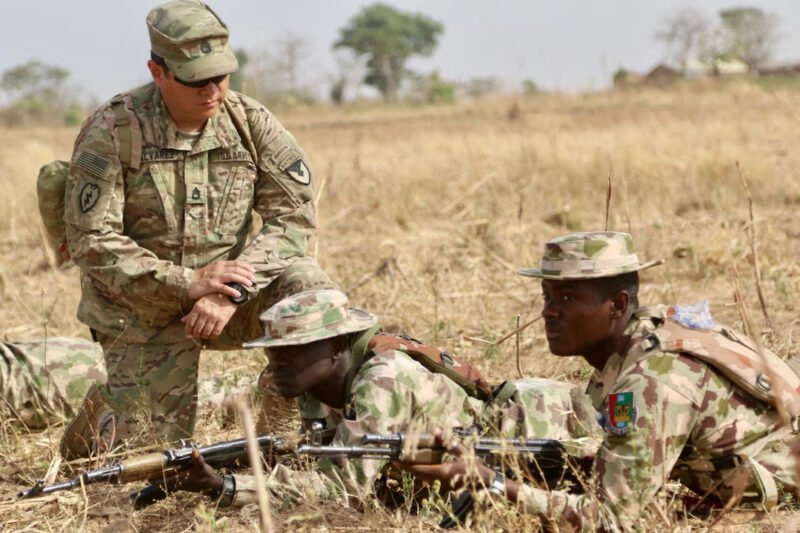
More U.S. boots on Nigerian soil — but not for combat. Washington deepens its security role in West Africa.
About 100 additional U.S. military personnel have arrived in Nigeria as Washington expands its support for the country’s campaign against insurgent groups, Nigerian defense officials confirmed.
Major General Samaila Uba, spokesperson for Nigeria’s Defense Headquarters, said the American troops will focus on training and advising Nigerian forces and enhancing intelligence capabilities. He stressed that the U.S. personnel will not participate directly in combat operations.
The deployment follows U.S. strikes in December targeting ISIS-linked militants and comes amid increased coordination between Abuja and the administration of Donald Trump. Trump has criticized Nigeria’s handling of extremist violence, accusing authorities of failing to protect Christian communities in parts of the northwest.
Nigeria has rejected those claims, maintaining that its security forces target armed groups regardless of religion. The country, Africa’s most populous with roughly 240 million people, is almost evenly divided between Muslims, predominantly in the north, and Christians, largely in the south.
Flight tracking data reviewed by Reuters showed multiple aircraft transporting U.S. personnel and equipment into northern Nigerian states in recent days. Earlier this month, Nigeria’s military indicated that up to 200 additional U.S. troops could arrive.
Presidential spokesperson Sunday Dare said Nigeria requires “massive support” from the United States, including fighter jets and munitions, though he did not specify numbers or timelines.
Nigeria continues to face significant security challenges from extremist organizations and armed groups operating across its northern regions. The expanded U.S. presence underscores growing international involvement in stabilizing a region that remains critical to West African security.
Terrorism
America Pulls Back From Somalia but Doubles Down Next Door
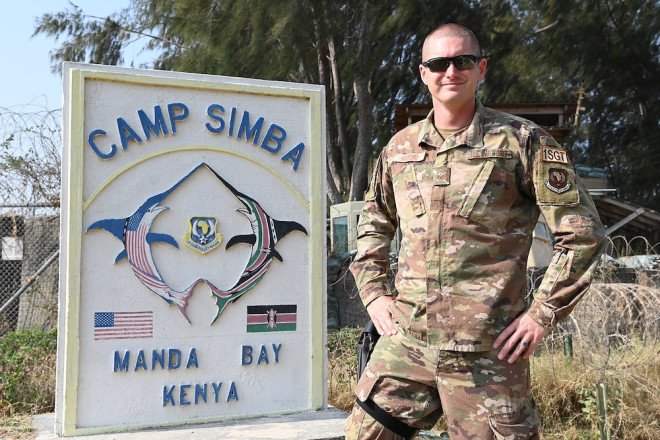
The U.S. Is Leaving Somalia, Not the Horn: Why Washington Is Repositioning Its War on Terror.
The United States is repositioning in the Horn of Africa, and the distinction matters. Washington is drawing down its presence in Somalia, but it is not disengaging from the region. Instead, it is relocating the architecture of its counterterrorism campaign to more stable ground, with Kenya emerging as the new operational anchor.
This shift reflects a hardening assessment in Washington that Somalia’s federal institutions are no longer a reliable platform for sustained security cooperation. Relations have deteriorated sharply since the U.S. president publicly questioned the existence of a functioning Somali government. That remark was not rhetorical excess; it was a policy signal. Confidence in Mogadishu’s ability to secure territory, protect partners, and manage sensitive operations has eroded.
The $70 million expansion of the Manda Bay Air Base in Kenya makes that recalibration explicit. Situated near the Somali border, Manda Bay allows the United States to project force, gather intelligence, and strike al-Shabaab targets without being entangled in Somalia’s internal political paralysis. Geography offers proximity. Governance offers predictability.
For Washington, this is about risk management. The attack on Camp Simba in 2020, which killed three Americans, underscored that even fortified positions inside Kenya are vulnerable. But Somalia presents deeper structural risks: fragmented authority, infiltration, and political volatility that complicate long-term basing and force protection. Relocating the operational hub reduces exposure while preserving reach.
Kenya also offers something Somalia currently cannot: a partner state capable of absorbing expanded U.S. presence without destabilizing its internal politics. Nairobi’s willingness to host U.S. forces, deepen intelligence cooperation, and position itself as a regional security pillar aligns with Washington’s preference for durable, state-centric partnerships. The previous administration’s move to elevate Kenya toward major non-NATO ally status signaled that trajectory long before the current base expansion.
The message to adversaries is deliberate. Al-Shabaab is being told that an American drawdown from Somalia does not equal retreat. Air power, surveillance, and special operations can still be launched quickly and with fewer political constraints. The Horn remains under watch, even if the flag is flying from a different runway.
There is also a broader regional logic at work. The Horn of Africa sits at the intersection of Red Sea security, Gulf rivalries, and great-power competition. Washington’s repositioning reflects an understanding that counterterrorism cannot be divorced from maritime security, regional alliances, and crisis response beyond Somalia’s borders. Kenya provides a platform that connects all three.
At the same time, the shift carries consequences for Somalia. Reduced U.S. presence limits Mogadishu’s access to direct military support and diplomatic leverage. It places greater responsibility on Somali forces and regional actors, while quietly signaling that international patience with chronic dysfunction is wearing thin.
This is not abandonment. U.S. strikes, intelligence sharing, and limited engagement will continue. But the center of gravity has moved. Washington is choosing flexibility over immersion, proximity over presence, and regional management over state-building experiments that have delivered diminishing returns.
The United States is not leaving the fight in the Horn of Africa. It is simply choosing where to fight it from.
Terrorism
U.S. Offers $1M for Names Behind Kismayo Airport Attack
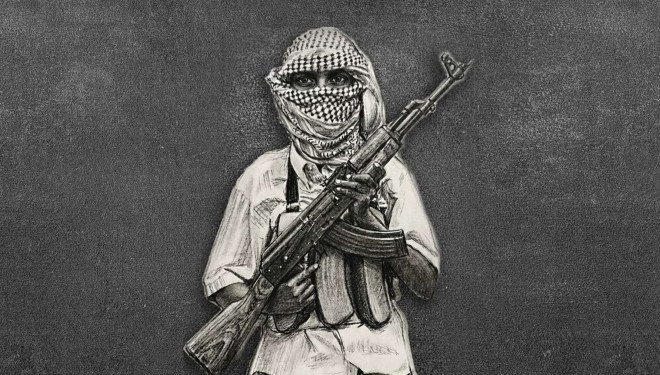
The $1 Million Signal: Why Washington Is Raising the Stakes in Kismayo.

The United States’ decision to offer a $1 million reward for information on the al-Shabab attack at Kismayo International Airport is less about the rockets that landed — and more about the message they sent.
The attack itself caused no casualties and inflicted no damage on U.S. facilities. But in counterterrorism logic, restraint is not reassurance. For Washington, the assault underscored a deeper concern: al-Shabab’s continued ability to probe hardened targets, test defenses, and remind both local populations and international actors that it remains operationally relevant.
Kismayo is not just another airport. It is a strategic node in Somalia’s fragmented security architecture — hosting U.S. forces, elite Somali Danab units, Jubbaland forces, and African partners. It also sits at the intersection of regional politics, port economics, and counterterrorism campaigns. Any attack there is designed less to win a battle than to shape perceptions.
The $1 million reward, issued through the Rewards for Justice program, reflects a shift in emphasis from battlefield attrition to intelligence disruption. Rather than responding with visible escalation — airstrikes, troop surges, or public threats — Washington is betting on fragmentation from within. Rewards destabilize militant networks by injecting suspicion, incentivizing defections, and forcing operatives to operate under constant fear of betrayal.
This approach also signals Washington’s assessment of the current phase of the Somali conflict. Al-Shabab is no longer trying to seize major cities outright. Instead, it is playing a long game of erosion: indirect fire attacks, assassinations, and symbolic strikes meant to exhaust the state, intimidate civilians, and undermine confidence in international partners.
The U.S. response suggests a recognition that Somalia’s war is increasingly intelligence-centric. Precision now matters more than spectacle. A single informant, correctly placed, can collapse a network faster than weeks of kinetic operations.
There is also a regional subtext. As global attention shifts toward Ukraine, Gaza, and the Indo-Pacific, Washington is signaling that Somalia remains a live counterterrorism theater — not a legacy mission drifting on autopilot. The reward announcement reinforces the idea that U.S. forces in Somalia are not merely advising from the margins, but remain protected assets whose targeting carries consequences.
For al-Shabab, the danger is not the money itself, but what it represents: an open invitation for internal leakage. Every logistics runner, every facilitator, every sympathizer now carries a price tag — and a risk.
For Somalia’s federal and regional authorities, the message is sharper still. Counterterrorism is no longer just about holding territory. It is about information dominance, financial tracing, and dismantling the human infrastructure that sustains insurgency.
Kismayo was meant to be a warning shot. Washington’s response makes clear it heard it — and answered in a language insurgent networks fear most: incentives, exposure, and internal collapse.
Terrorism
Foreign ISIS Pipeline Exposed: Puntland Captures Dozens of Non-Somali Fighters
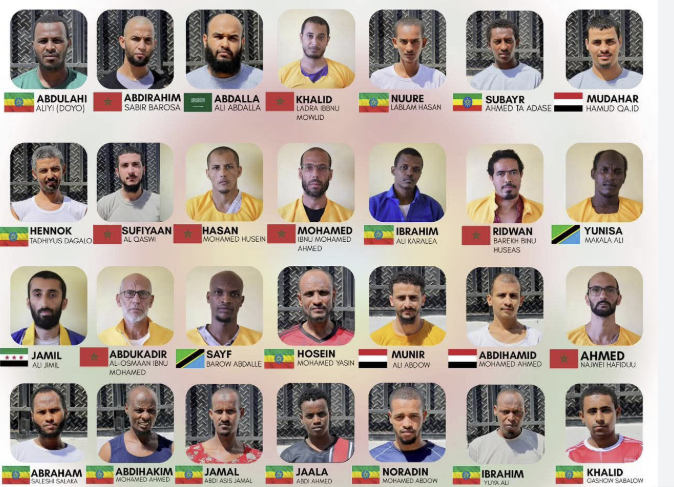
Puntland Arrests Dozens of Foreign Islamic State Fighters in Major Counterterrorism Offensive.
Puntland’s latest counterterrorism operation has delivered one of the clearest intelligence victories against Islamic State in Somalia in years — and it exposes the group’s deeply international character.
Security forces in the autonomous federal state announced the capture of between 30 and 50 foreign ISIS fighters during Operation Hilaac in the Al-Miskaad mountains, a long-standing militant sanctuary in the Bari region. The detainees include nationals from Turkey, Saudi Arabia, Morocco, Ethiopia, Yemen and Tanzania — a striking reminder that ISIS in Somalia is not a local insurgency, but a transnational project embedded in global extremist networks.
According to Puntland Counter-Terrorism Operations officials, the arrests were carried out with aerial and technical support from the United States Africa Command (AFRICOM) and the United Arab Emirates, underscoring the growing role of international partners in Horn of Africa security operations. Puntland authorities say their forces have now cleared roughly 98 percent of the Al-Miskaad range, pushing ISIS remnants toward the Golis mountains.
The symbolism matters. For years, Al-Miskaad’s caves and rugged terrain allowed ISIS-Somalia to operate as a logistics hub, recruitment center, and training ground — particularly for foreign fighters seeking a foothold in East Africa after pressure mounted in the Middle East. This operation disrupts that pipeline.
The public release of names and nationalities is also a political signal. Puntland is framing the fight not just as a Somali security issue, but as part of a wider international counterterrorism effort — placing pressure on regional and foreign governments to confront how their citizens end up fueling extremist violence abroad.
Strategically, the offensive strengthens Puntland’s standing as a capable security actor at a time when Somalia’s federal system remains fragmented and external threats persist. It also complicates ISIS’s narrative: the image of a “local jihad” collapses when dozens of foreign fighters are paraded before cameras.
Operation Hilaac is not the end of ISIS in Somalia — but it marks a decisive blow to its foreign backbone.
Terrorism
UK–France Bomb ISIS Tunnels Near Palmyra as Syria Becomes Active War Zone Again
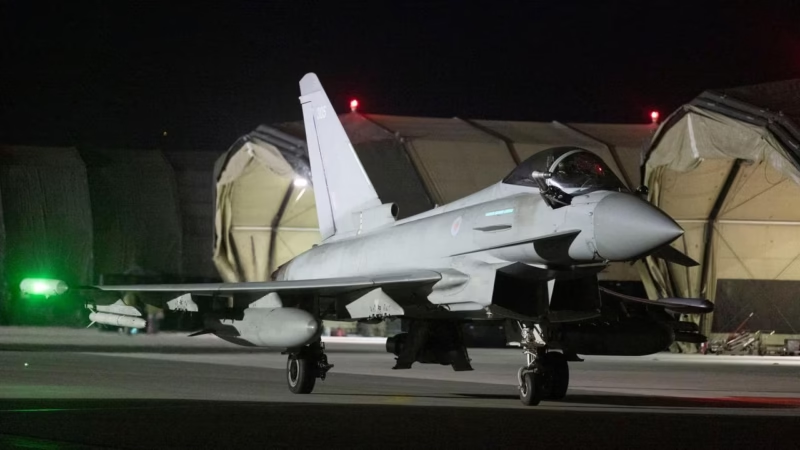
ALLIES STRIKE BACK: UK– UK and France Carry Out Joint Airstrike on Suspected ISIS Weapons Facility in Central Syria.
The United Kingdom and France have carried out a coordinated airstrike on a suspected Islamic State weapons complex in central Syria, signaling that Western powers are once again prepared to use force to prevent ISIS from exploiting regional chaos.
According to the UK Ministry of Defence, Royal Air Force Typhoon FGR4 jets, operating alongside French aircraft, struck an underground facility north of Palmyra on Saturday evening. The target, buried in the rugged terrain of Syria’s Homs province, was believed to be used by ISIS to store weapons and explosives. Precision-guided Paveway IV bombs were used to collapse access tunnels, with British Voyager tankers supporting the operation in midair.
Initial battle damage assessments suggest the strike was successful, though full confirmation is still pending.
The timing matters. The operation comes amid heightened U.S. military activity in Syria and reflects growing concern that ISIS is quietly regenerating in the vacuum created by fractured Syrian authority, Iranian repositioning, and shifting U.S. priorities across the Middle East.
UK Defence Secretary Sir John Healey framed the strike as a clear message: Britain will not allow ISIS to resurface. “This operation demonstrates our determination to prevent any resurgence of Islamic State and to stand shoulder to shoulder with our allies,” he said, underscoring London’s commitment to the U.S.-led Global Coalition to Defeat ISIS.
That coalition may no longer dominate headlines, but it is far from dormant. U.S. Central Command has repeatedly warned that ISIS remains an “active and persistent threat,” particularly in central and eastern Syria. In December, U.S. forces launched large-scale strikes across the same region after an ISIS ambush near Palmyra killed two American troops and a civilian interpreter.
The Palmyra corridor has become a familiar flashpoint. Once a symbol of ISIS’s brutal rise, the area now serves as a reminder of how easily extremist groups can reconstitute when state control weakens and international attention drifts.
This latest strike also reflects a broader Western recalibration. With Washington simultaneously escalating pressure on Iran, reshaping its posture in Syria, and signaling a harder line across multiple theaters, European allies appear determined not to be sidelined. The UK–France operation reinforces a message of alignment: counterterrorism remains a shared priority, even as global focus shifts to great-power competition.
For ISIS, the implication is blunt. The group may be quieter, more fragmented, and less territorial than at its peak—but it is still being watched, tracked, and hit.
For Syria, the reality is harsher. Nearly a decade after ISIS’s defeat as a “state,” the country remains a battlefield where foreign airpower can strike at will, and where stability is still fragile enough to allow extremist cells to survive underground.
The war against ISIS, it seems, never truly ended. It merely went subterranean.
Somaliland
Houthis Threaten Somaliland After Israel Recognition

Yemen’s Iran-backed Houthi movement has issued a direct threat following Israel’s historic recognition of Somaliland, warning it would treat “any Israeli presence in Somaliland as a military target.”
In a speech broadcast Sunday by the Houthi-run Saba News Agency, the group’s leader Sayyed Abdulmalik al-Houthi accused Israel of seeking the “disintegration and fragmentation of other countries” and framed the recognition as a threat to both Somalia and Yemen.
“We emphasize our firm stand with the brotherly Somali people against Israel,” al-Houthi said, adding that the Houthis would take “all possible support measures” in response. He ended by calling on Yemenis to rally behind the Palestinian cause, claiming failure to do so would open the door to what he described as Israeli “conspiracies” worldwide.
The warning comes days after Israeli Prime Minister Benjamin Netanyahu formally recognized the Republic of Somaliland as an independent and sovereign state, making Israel the first UN member country to do so. Netanyahu said the move was made “in the spirit of the Abraham Accords,” launched under former US President Donald Trump.
Somaliland has functioned as a separate, stable state since 1991, following the collapse of Somalia, and has maintained peace, democratic elections, and internal security for more than three decades. Mogadishu has consistently lobbied international actors to block recognition of Somaliland.
Hargeisa views Israel’s decision as a diplomatic breakthrough that could encourage other nations to follow, expanding Somaliland’s international standing and access to global markets. The Houthi threat now underscores the wider regional stakes, as Red Sea tensions and Middle East conflicts increasingly intersect with the Horn of Africa’s shifting geopolitical landscape.
Houthis Threaten Global Stability: How Long Can the World Ignore Them?
Terror and Exploitation: The Dark Role of the Houthis’ Female Brigade
The Secret Maritime Corridor Linking Yemen’s Houthis to Somalia’s Militants
Terrorism
UN Experts Warn Al-Shabab Remains the Greatest Threat to Peace in Somalia and East Africa

UN Alarm: Al-Shabab’s Power Undiminished as Somalia and Kenya Face Escalating Threat.
Al-Shabab remains the single most serious threat to peace and stability in Somalia and the wider region, particularly Kenya, according to a new report by United Nations experts that underscores how resilient the al-Qaida-linked group has become despite years of military pressure.
In findings released Wednesday, the panel said that sustained operations by Somali forces and international partners have failed to significantly degrade the group’s operational capacity. Al-Shabab, the experts concluded, retains the ability to plan and execute complex, asymmetric attacks across Somalia, including in heavily fortified areas of Mogadishu.
The attempted assassination of President Hassan Sheikh Mohamud on March 18, carried out near the capital, was cited as evidence of the group’s continued reach and intelligence penetration.
But the threat posed by al-Shabab extends far beyond headline attacks. The report highlights the group’s sophisticated system of extortion, forced recruitment, and propaganda, which together provide a steady flow of revenue, fighters, and ideological influence. These mechanisms, the experts said, allow the organization to regenerate even as it loses fighters on the battlefield.
The warning comes as the U.N. Security Council unanimously voted this week to extend the mandate of the African Union’s support and stabilization mission in Somalia through Dec. 31, 2026. The force, comprising nearly 12,000 uniformed personnel including police units, remains central to efforts to contain the insurgency. Yet the report suggests that military containment alone has not broken al-Shabab’s strategic momentum.
Regionally, Kenya faces a persistent and evolving threat. The panel reported that al-Shabab continues to carry out a steady stream of attacks inside Kenyan territory, averaging about six incidents per month this year. Most have occurred in Mandera and Lamu counties along the Somali border and range from roadside bombings targeting security forces to kidnappings, infrastructure sabotage, home raids, and livestock theft. The pattern reflects a strategy aimed at destabilizing border communities while stretching Kenyan security resources.
At the core of al-Shabab’s campaign, the experts said, is an unchanged ideological objective: the overthrow of Somalia’s federal government, the expulsion of foreign forces, and the creation of a “Greater Somalia” uniting ethnic Somalis across East Africa under a hardline interpretation of Islamic rule.
The report also examined the growing footprint of Islamic State in Somalia. While far smaller than al-Shabab, ISIL-Somalia has expanded steadily, drawing recruits from across the region and beyond. By the end of 2024, the group was estimated to have more than 1,000 fighters, at least 60 percent of them foreign nationals. Though limited in resources, the panel warned that its expansion represents a serious and compounding security risk.
Taken together, the findings paint a sobering picture: Somalia’s militant landscape is not shrinking but diversifying, with al-Shabab still dominant and rival extremist groups gaining ground. Without stronger political cohesion, financial disruption of militant networks, and regional coordination, the experts warn, the threat to Somalia and its neighbors is likely to endure.
Somaliland
Profiling Yusuf Shaacir: The Anatomy of an Extremist Inciter
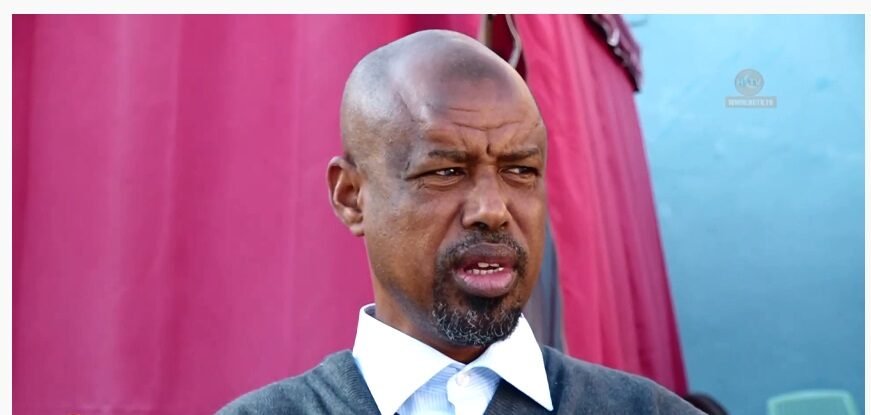
INTELLIGENCE DOSSIER: Yusuf Osman Abdulleh (Yusuf Shaacir) – The Anatomy of an Extremist Inciter.
Subject: Yusuf Osman Abdulleh (aka Yuusuf Shaacir)
Status: High-Risk Extremist Agitator / Potential Terror Link
Location: Hargeisa, Somaliland
Role: Former Advisor to the House of Representatives (Somaliland); Member of Federal Govt. of Somalia Education Committee
Executive Summary: The Self-Appointed “Fighter”
This dossier profiles Yusuf Osman Abdulleh, known publicly as Yusuf Shaacir, a prominent and increasingly dangerous extremist voice operating within the political and social fabric of Somaliland. Born in the nomadic area of Burao (est. 1970) and lacking formal secular education, Yusuf has transformed from a cultural coordinator into a radicalized agitator.
He has self-appointed himself as a “fighter” for Islam, utilizing this persona to wage a dangerous campaign of incitement against civil society, women’s rights activists, and educational institutions.
Crucially, intelligence indicates that Yusuf is not acting alone. Security assessments suggest he has been radicalized and potentially funded by external actors to serve as a propaganda machine, with credible links pointing towards the Al-Shabaab terror network.
1. Radicalization Trajectory: From Culture to Extremism
Yusuf’s path to radicalization appears rooted in economic grievance and professional failure. Formerly affiliated with the Hargeisa Cultural Centre (HCC) as a coordinator for poets, he was dismissed following complaints from the artists he managed.
The Pivot: Post-dismissal, Yusuf pivoted from cultural work to hardline religious agitation. Intelligence sources indicate he was targeted for recruitment by individuals offering financial incentives to weaponize his anger.
The Narrative: He began systematically attacking his former employers, labeling the HCC and the Hargeisa International Book Fair as “secular” conspiracies designed to eradicate Islam from Somaliland. These allegations are unproven but are designed to incite public violence.
Proof of Rhetoric: In his latest speech, Yusuf explicitly declares himself to be “at war” with groups he deems a threat to religion.
2. The Threat Vector: Incitement and Violence
Yusuf’s primary weapon is the weaponization of Takfir (declaring others apostates). By labeling civil society leaders, authors, and human rights defenders as “anti-Islamic” or “atheists,” he is effectively marking them for death in a region where such labels can lead to extrajudicial killing.
Targeting Women: Women’s rights activists are a specific focus of his vitriol. One activist noted, “I am afraid that I might be killed on the streets of Hargeisa… When you are called anti-Islam and apostate, you become an easy target for every fanatic.”
Antisemitism: Yusuf propagates virulent antisemitic views. His Facebook posts against Jewish visitors to Hargeisa framed them as dangerous elements, forcing their evacuation to avoid attack. This rhetoric directly feeds into the narratives of global extremist groups. Evidence of Antisemitic Posts
Education as “Haram”: Mirroring the ideology of Boko Haram, Yusuf attacks schools and universities, particularly those enrolling girls, viewing secular education as forbidden. He publicly appealed for the arrest of an individual posting about human biology, misrepresenting science as an attack on Islam.
3. Institutional Infiltration and Terror Links
The most alarming aspect of Yusuf’s profile is his successful infiltration of state institutions, granting his extremist views a veneer of legitimacy.
Former Advisor to Parliament: Despite his extremist rhetoric, the former Speaker of the House of Representatives, Abdirizak Khalif Ahmed, appointed Yusuf as an advisor on the Somali language. The Speaker’s failure to distance himself from Yusuf’s fanaticism raises serious security questions.
Former Federal Government Role: Yusuf also sits on a committee for the Ministry of Education of the Federal Government of Somalia, a dangerous position for an individual who opposes secular education.
Al-Shabaab Connection: Security experts and intelligence agencies investigating Yusuf believe there is a strong probability of a connection to Al-Shabaab, the Al-Qaeda affiliate responsible for scores of deaths in the region. His operational pattern—using social media to recruit youth and incite violence—aligns perfectly with the group’s recruitment strategy.
4. Digital Footprint and Evidence
Yusuf utilizes social media platforms to disseminate his hate speech, reaching audiences far beyond Somaliland.
Primary Channels:
Facebook Page: Abw.YuusufShaacir
Facebook Account: Yuusuf Shaacir Personal
Video Evidence of Extremist Speeches (Somali Language):
Speech 1: Declaration of War on Secularism
Speech 2: Incitement Against Civil Society
Speech 5: Targeting Individuals
Speech 6: Antisemitic Commentary
Facebook Video: Mobilization Call
Conclusion: A Clear and Present Danger
Yusuf Shaacir represents a critical threat to the peace and tolerance that are the hallmarks of Somaliland society. He is not merely a conservative critic; he is an active agent of radicalization, using the cover of state employment to legitimize a campaign of terror and incitement.
His actions violate Article 10 of the Somaliland Constitution and align with the UN definition of violent extremism. Immediate containment and legal action are required to dismantle the platform of this self-appointed “fighter” before his rhetoric converts into lethal action.
-

 Minnesota2 months ago
Minnesota2 months agoFraud Allegations Close In on Somalia’s Top Diplomats
-

 Middle East2 months ago
Middle East2 months agoTurkey’s Syria Radar Plan Triggers Israeli Red Lines
-

 Editor's Pick2 months ago
Editor's Pick2 months agoWhy India Is Poised to Become the Next Major Power to Recognize Somaliland
-

 ASSESSMENTS2 months ago
ASSESSMENTS2 months agoSomalia’s Risky Pact with Pakistan Sparks Regional Alarm
-

 Analysis2 months ago
Analysis2 months agoTurkey’s Expanding Footprint in Somalia Draws Parliamentary Scrutiny
-

 Analysis2 months ago
Analysis2 months agoRED SEA SHOCKER: TURKEY’S PROXY STATE RISES—AND ISRAEL IS WATCHING
-

 Somaliland1 month ago
Somaliland1 month agoF-35s Over Hargeisa: The Night Somaliland’s Sovereignty Went Supersonic
-

 Somalia2 months ago
Somalia2 months agoIs Somalia’s Oil the Price of Loyalty to Turkey? MP Blows Whistle on Explosive Oil Deal


